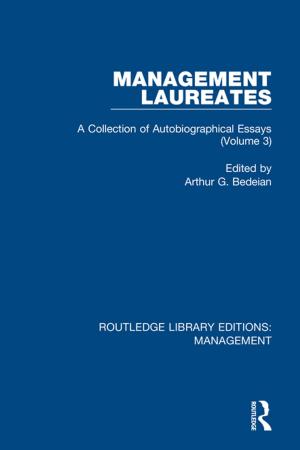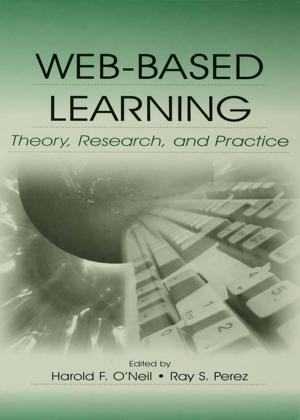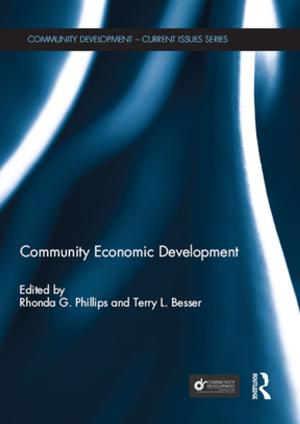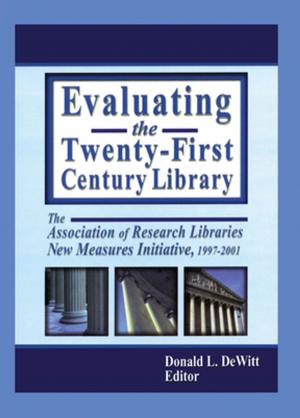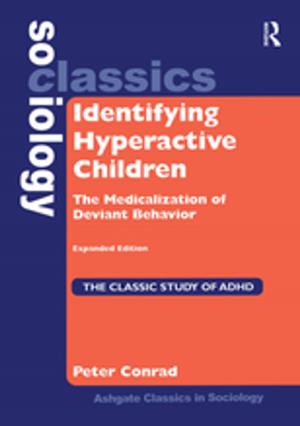Internet Reference Support for Distance Learners
Nonfiction, Reference & Language, Education & Teaching, Teaching, Computers & Technology, Computers, Internet| Author: | Rita Pellen, William Miller | ISBN: | 9781317824923 |
| Publisher: | Taylor and Francis | Publication: | December 19, 2013 |
| Imprint: | Routledge | Language: | English |
| Author: | Rita Pellen, William Miller |
| ISBN: | 9781317824923 |
| Publisher: | Taylor and Francis |
| Publication: | December 19, 2013 |
| Imprint: | Routledge |
| Language: | English |
Make separate library services for distance learners a thing of the past
Internet Reference Support for Distance Learners takes a comprehensive look at efforts by librarians and information specialists to provide distance learners with effective services that match those already available on campus. With the development of the World Wide Web and the evolution of Web-based services, reference librarians are adding a human element to the virtual library, blurring the difference between distance learners and traditional users. This unique book examines how they deal with a wide range of related topics, including standards and guidelines, copyright issues, streaming media, and chat and digital references, and presents a historical overview of how reference and instructional services have been delivered to distance users-before and after the creation of the Internet.
Internet Reference Support for Distance Learners reveals that librarians do not make a sharp distinction between reference and instruction within the context of distance learning, and that there is no clear boundary between true distance learners and more traditional students who might use services designed for nontraditional users. Online capabilities have allowed reference librarians to approximate services advocated by published guidelines and standards, including the ACRL Distance Learning Section’s Guidelines for Distance Learning Library Services, to provide a framework for librarians to plan services for off-campus students.
Internet Reference Support for Distance Learners provides practical information on:
-
how librarians can keep IT simple when designing methods to access reference support
-
why library Web sites are vital sources of communication between the distance learning student and the reference-based instructional component
-
how to set up a university chat service, including software selection, staff training and assessment
-
how to provide students services beyond traditional provision of resources, including advising, enrollment, and payment of fees
-
how to create an online assistance site that incorporates online versions of traditional print handouts, FAQs, subject guides, course-specific guides, learning modules, and instructional videos in one central location
-
how to work with faculty to create online support for students in Blackboard courses
-
the pros and cons of using open-source software
-
how to create an online library assistance site
-
how to create online information literacy course to teach independent research skills to remote students
-
how to avoid copyright infringement and how to educate library personnel about copyright law
-
how to use Camtasia Studio, a screen capture program to create audio and video for online presentations
Internet Reference Support for Distance Learners is an invaluable resource for librarians working in academic, school, special, and public settings, and for library science faculty and students.
Make separate library services for distance learners a thing of the past
Internet Reference Support for Distance Learners takes a comprehensive look at efforts by librarians and information specialists to provide distance learners with effective services that match those already available on campus. With the development of the World Wide Web and the evolution of Web-based services, reference librarians are adding a human element to the virtual library, blurring the difference between distance learners and traditional users. This unique book examines how they deal with a wide range of related topics, including standards and guidelines, copyright issues, streaming media, and chat and digital references, and presents a historical overview of how reference and instructional services have been delivered to distance users-before and after the creation of the Internet.
Internet Reference Support for Distance Learners reveals that librarians do not make a sharp distinction between reference and instruction within the context of distance learning, and that there is no clear boundary between true distance learners and more traditional students who might use services designed for nontraditional users. Online capabilities have allowed reference librarians to approximate services advocated by published guidelines and standards, including the ACRL Distance Learning Section’s Guidelines for Distance Learning Library Services, to provide a framework for librarians to plan services for off-campus students.
Internet Reference Support for Distance Learners provides practical information on:
-
how librarians can keep IT simple when designing methods to access reference support
-
why library Web sites are vital sources of communication between the distance learning student and the reference-based instructional component
-
how to set up a university chat service, including software selection, staff training and assessment
-
how to provide students services beyond traditional provision of resources, including advising, enrollment, and payment of fees
-
how to create an online assistance site that incorporates online versions of traditional print handouts, FAQs, subject guides, course-specific guides, learning modules, and instructional videos in one central location
-
how to work with faculty to create online support for students in Blackboard courses
-
the pros and cons of using open-source software
-
how to create an online library assistance site
-
how to create online information literacy course to teach independent research skills to remote students
-
how to avoid copyright infringement and how to educate library personnel about copyright law
-
how to use Camtasia Studio, a screen capture program to create audio and video for online presentations
Internet Reference Support for Distance Learners is an invaluable resource for librarians working in academic, school, special, and public settings, and for library science faculty and students.



